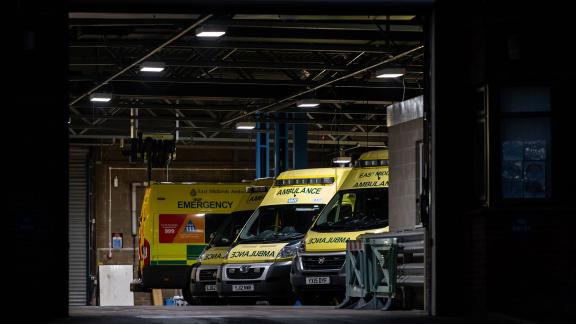What role do ambulance services play in public health?

In its 2019 review of the wider public health workforce, Public Health England recognised that the changing nature of population health challenges facing the UK requires a whole society, cross-sector approach to prevention. Here Ruth Crabtree, public health lead at Yorkshire Ambulance Service NHS Trust (YAS), considers the role of the ambulance service in this shifting landscape, the challenges and opportunities of taking a public health approach and what this means in practical terms.
The ambulance service sees such a broad range of people and issues that it has a unique role to play in supporting people to improve their health. Staff are a huge part of the picture in making it happen and using the contact they have, whether it’s on the phone or in person, to provide health advice, signposting and support.
Part of the work I’m focused on is developing the strategy for how ambulance services can include public health in their work. A large part of this will be embedding it in the culture of the service so that there is a consistency of approach in how we provide that advice to people.
Alcohol services
An example of where we see this working in practice is the patient referral pathway into local alcohol services available to frontline ambulance staff in the Yorkshire area. This pathway enables staff to speak to a patient about how much alcohol they consume through the use of a recognised screening tool, regardless of whether or not alcohol is the reason for calling. The pathway has been well received both by people who have used the ambulance service and the local alcohol services.
“I had occasion to require ambulance assistance three times. On each occasion, I was having seizures induced by excessive alcohol consumption. Someone in my state wouldn’t often seek help themselves or are often not in a state to do so. I would like to give a message to all ambulance crews to take every opportunity to try and refer patients with alcohol problems; it might seem as if it will fall on stony ground but on every occasion they should try (please don’t be put off).The input from the crew was invaluable for me and could be for others too.”
YAS referrals are certainly invaluable for the service user in that their alcohol use is more likely to get picked up at an earlier opportunity. It is also to likely be at a time when they are in a crisis as a result of their alcohol use. This is often the perfect opportunity for insight and intervention at a time when they may be contemplating change. The YAS pathway offers an increased opportunity to provide the right intervention at the right time to service users.
Using and interpreting data
Another key element of public health approaches is the skilled use and interpretation of data. Ambulance services have a wealth of data about the populations we serve. When combined with other socio-demographic data, ambulance activity and call category data, this has the potential to provide a much broader picture of these populations. There is a lot we can do to contribute to shaping the delivery and development of services by working with integrated care systems – partners across health, police, fire, local authorities and third sector organisations. Developing an understanding of how we can best contribute to this is key in developing our public health approach moving forwards.
Traditionally prevention has not been a focus of the ambulance sector, which has been seen primarily as an emergency service for the most life-threatening conditions – this is actually only a small part of our workload. The far broader role in urgent care that the sector plays is now widely accepted and articulated, and we can build the public health agenda within this.
Part of the solution
There is a challenge, however, for ambulance services in being identified as organisations that have a key public health role. The benefits of delivering public health advice, for instance, are often longer term and the pay-off tends to be related to other parts of the system rather than of immediate benefit to the ambulance service. With no specific commissioning related to this agenda, dedicating resource is a challenge.
We understand that to really drive forwards this agenda, we need to ensure a strategic approach to public health across the sector. By taking a more upstream, holistic approach to healthcare provision, we are aiming to use truly person-centred care to intervene earlier and prevent or delay the onset of debilitating conditions before they require urgent or emergency care provision. However, in order to appropriately represent the public health interests of the ambulance sector both locally and nationally, dedicated capacity and resource within trusts are needed.
Ruth Crabtree is public health lead at Yorkshire Ambulance Service NHS Trust. Follow the trust on Twitter @YorksAmbulance



